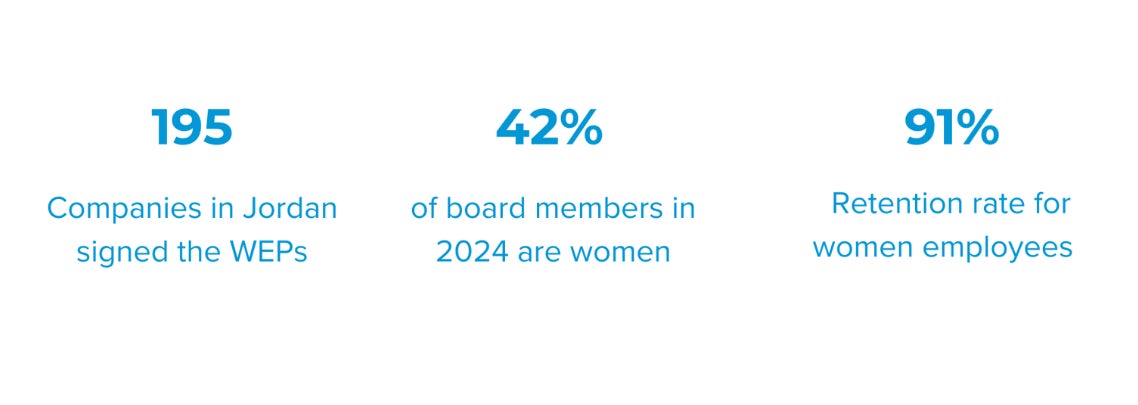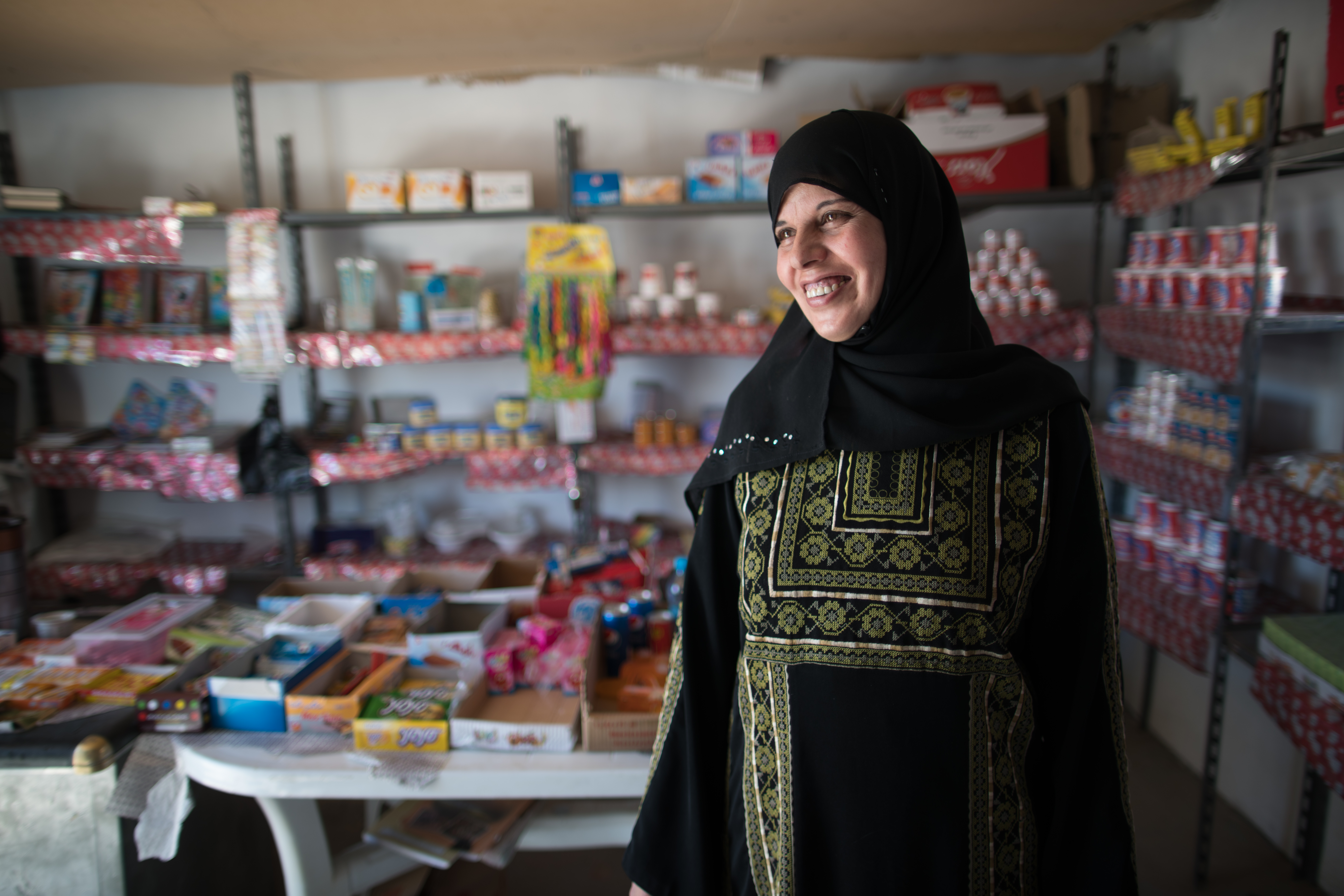
Women's Economic Empowerment

The labor force participation rate for women in Jordan was 13% in 2022, increasing to 14% in 2023. This remains one of the lowest rates in the region and globally, despite some recent improvements and high levels of education among women.
The Jordanian economy has faced a series of economic shocks in recent years, including the war in Syria, the COVID-19 crisis, and now the ongoing war in Gaza, along with general regional instability. These challenges have hindered the creation of sufficient jobs to absorb new entrants to the labor market and meet the targeted GDP growth rates. This has had a particular impact on women's labor force participation, which is further affected by social and structural barriers such as the lack of affordable childcare and transportation, low labor standards in the manufacturing sector and prevailing social norms.
For instance, over 70% of people believe it is unsuitable for women to accept jobs that require them to return home after dark. Additionally, many women leave their employment upon marriage or pregnancy. Compounding this, the mandatory retirement age of 52 for women has contributed to 40% of employed women leaving the workforce in 2023.
Response:
To address these barriers, UN Women, in partnership with key stakeholders, works to promote women’s economic empowerment in Jordan by applying the 'leaving no one behind' principle. We focus on supporting the most vulnerable women, helping them access income-generating opportunities and resources that enhance their economic autonomy through the following key areas.
Key Areas:
- National High Level Political Leadership: Jordan will advance policy reforms to boost women’s labor force participation, focusing on fair recruitment, equal pay, sexual harassment prevention, extended maternity leave, and the new Nursery Bylaw. The initiative will also support private sector laws for women-led businesses, gender-responsive procurement and public-private partnerships, while promoting gender mainstreaming in key ministries.
- Sustainable Financing: Jordan launched its Economic Modernization Vision in 2022, aiming to create over 1 million jobs by 2033, with a focus on sectors like digital technology, healthcare and sustainable resources. This plan includes a dedicated strategy to double women's economic empowerment, enhance formal employment and support youth unemployment and women’s entrepreneurship, alongside national efforts to address care, including amendments to the Nursery Bylaw and support for green jobs.
- Legal Amendments and Policy Amendments: Jordan will advance policy reforms to boost women’s labor force participation, focusing on fair recruitment, equal pay, sexual harassment prevention, extended maternity leave, and the new Nursery Bylaw. The initiative will also support private sector laws for women-led businesses, gender-responsive procurement, and public-private partnerships, while promoting gender mainstreaming in key ministries.
- Social Norms: Jordan will tackle social norms that affect women’s participation in the economy. Through the "Dare to Care" programme, the country will work on getting young fathers more involved in childcare and promote gender-responsive marketing in companies that have signed the WEPs. The programme will also address attitudes toward the value of women’s work and how women view private sector employment.
- Mass and Social Media Systematic Change in the Narrative about Gender Equality: The mass media strategy, led by the Dare to Care programme, focuses on two key messages: 1) the benefits of women’s employment in the country, including financial gains for families and human development, and 2) the loss of highly educated youth when they remain unemployed. These messages will be shared consistently across multiple channels through 2030.
- Private Sector Development including through WEP signatories: Jordan aims to increase women’s employment by 5% in key companies, adding 4,500 women to the workforce by 2030. The country is also launching a Gender Equality Seal and new initiatives to encourage businesses to hire more women and support women-led companies.
National Partners
Inter-Ministerial Committee for Women’s Empowerment, the Ministry of Labor, The Ministry of Social Development, the Ministry of Planning, the Ministry of Agriculture, the Ministry of Finance, the Ministry of Trade and Industry, Social Security Corporation, Jordanian National Commission for Women, Business Associations and Chambers of Industry and Commerce, and Civil Society Organizations.
Thanks to the support of
Swedish International Development Agency (SIDA), European Union (EU)
This programme has been impactful.
